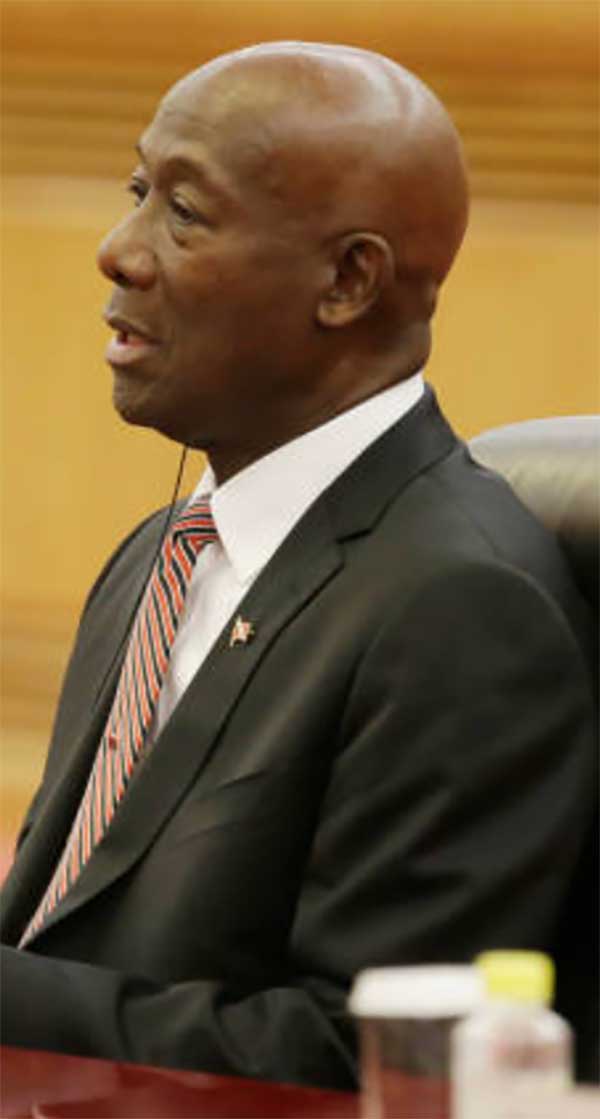THE Joint Council for the Construction Industry of T&T (JCC) was invited to attend the Spotlight on the Economy forum hosted by the Ministry of Finance on Friday.
All present were informed that the 2022/2023 budget was going to be read by the Minister of Finance on September 26, and that the country could expect it to be over TT$50 billion, with a smaller deficit of around $2 billion. The latter was indeed good news.
The JCC, however, warned the public earlier this year that we were about to have yet another budget read in 2022 without procurement reform via legislation that has undergone all due processes, including three sets of amendments, since 2015.
The current situation, as far as the public has been informed, is that the attorney general told Parliament on June 22, 2022, that, inter alia, comments from the chief justice (that he the AG solicited), were ‘traffic stopping’-meaning the Government could not proceed at that time with full operationalisation, but that the Ministry of the Attorney General and Legal Affairs was addressing all ‘outstanding’ matters with the assistance of the OPR.

During the question and – answer period, the JCC therefore posed the following question to the honourable prime minister: ‘Based on the understanding that procurement reform has the potential to save this country billions of taxpayers’ dollars, what is the Government’s revised target date for full operationalisation of the procurement legislation?’
The prime minister’s response was equally astounding and disappointing. First he indicated he did not agree that procurement reform has the potential to save T& T billions of dollars. For this, he relied on his recent discussions with the Jamaican prime minister, in which the latter indicated that in the Jamaica experience, it led to higher costs and more delays in the sphere of smaller-scale procurement.
The JCC can find no evidence for this statement, but cautions Dr Rowley that we should be comparing ourselves to more developed countries if we aspire to achieve significant improvement in our systems.
Dr Rowley then repeated his previously made public comment that procurement reform was not a panacea for curing corruption. No stakeholder has ever claimed procurement legislation, when operationalised, would be a magic wand to change corruption associated with public spending.
Operationalisation of the legislation would simply facilitate real oversight by an independent body, the OPR that is now ably equipped with the human and technological resources to execute their primary function under the Public Procurement and Property Disposal Act.
Everyone understands the process of change will continue to be slow before the country realises the benefit of reduced corruption through increased efficiency, independent oversight and transparency.
Dr Rowley, of all people, understands good behaviour around public money has to be legislated while transgressions require heavy enforceable penalties to act as a deterrent.
Or, as Martin Luther King Jr put it, ‘Morality cannot be legislated, but behaviour can be regulated. Judicial decrees may not change the heart, but they can restrain the heartless.’
We, therefore, implore our prime minister to stop sending mixed signals to his ministers and the public service entities that continue to spend public money with impunity.
We need the law fully operationalised to grapple as a society with restraining the heartless few taking unfair advantages in the realm of public procurement.
After responding as described above, Dr Rowley closed his response by stating that yes, he wants the procurement legislation passed, but some work is required, but it will be done. The question of a final deadline was not given by the honourable prime minister.
After seven years of the previous regime passing the parent act in 2015, this response is simply unacceptable from the person with maximum power and ultimate responsibility in T&T.
According to the Regulator, Mr Moonilal Lalchan, ‘proper procurement practices could save this country a conservative $5.2 billion a year-otherwise lost to corruption or inefficiency’ (Express, February 7, 2020).
The JCC again calls on the prime minister to get involved in the details of the outstanding matters with the AG, that he referred to as ‘some work’, so that he can properly advise the public of a final date for the full operationalisation of the procurement legislation.
Author: Fazir Khan, JCC President